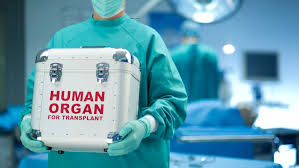… 651 kidneys illegally transplanted In Nigeria At $41bn In 5 years
… Criminal gangs, health workers named as facilitators
A Professor of Medicine at Bayero University Kano (BUK) and consultant nephrologist at Aminu Kano Teaching Hospital (AKTH), Prof. Aliyu Abdu, has raised alarm over the scale of illegal kidney trade in Nigeria, revealing that at least 651 kidneys worth over $41 billion were trafficked and transplanted in the country between 2015 and 2020.
Speaking at a seminar on National Organ and Tissue Transplantation Standards organised by Clarion Call Care Foundation in Abuja, Abdu disclosed that globally, an estimated 10,000 kidneys are sold annually on the black market, with one being sold every hour.
He said the Nigerian kidney trafficking network is thriving largely due to poverty, inequality, weak medical regulation, and the involvement of unethical practitioners.
“Victims are mostly impoverished people who are easily influenced by financial incentives and ignorant of the possible risks involved. Organ trafficking flourishes in Nigeria for a variety of reasons including poverty, inequality, unethical medical practices, and lack of regulation and enforcement of medical ethics and unconscionable medical practitioners as facilitators,” he said.
The professor lamented that most kidney donors in the country are either coerced, deceived, or driven by financial desperation, and often abandoned after the procedure without proper medical care or adequate compensation.
“Unfortunately, most of the organ donors are left without proper medical care or financial compensation after the procedure is completed, leaving them to suffer depression and diseases arising from poor and unprofessional handling of their case,” Abdu added.
He further explained that the criminal underworld runs the kidney trade through an organised network of brokers, agents, and even medical personnel.
“The kidney business involves the criminal underworld through an organised network of illegal brokers and agents who supply organs from victims to recipients.
This network ranges from those who work as ‘organ hunters’ to those who work full-time in the medical industry, including physicians, nurses, anaesthetists, ambulance drivers, travel agents and insurance agents,” he stated.
According to him, the absence of organ banks and cadaveric donations has worsened the problem, leaving desperate patients dependent on trafficked organs.
The World Health Organisation (WHO), he noted, defines organ trafficking as the recruitment, transportation, transfer, harbouring or receipt of living or deceased persons or their organs by means of threat, coercion, deception, or abuse of power for the purpose of removal or transplantation.
Nigeria’s National Health Act of 2014 prohibits the commercialisation of human organs and mandates informed consent before organ removal.
The law, however, allows reimbursement of “reasonable costs” incurred by donors but criminalises direct financial transactions for organs, prescribing fines or imprisonment for offenders. It also prohibits kidney removal from anyone under 18 or above 65 years of age.
Abdu urged the Federal Government and regulatory agencies to strengthen enforcement mechanisms, address poverty, and establish organ banks to reduce reliance on the black market.
Do you want to share a story with us? Do you want to advertise with us? Do you need publicity for a product, service, or event? Contact us on WhatsApp +2348183319097 Email: platformtimes@gmail.com
We are committed to impactful investigative journalism for human interest and social justice. Your donation will help us tell more stories. Kindly donate any amount HERE




